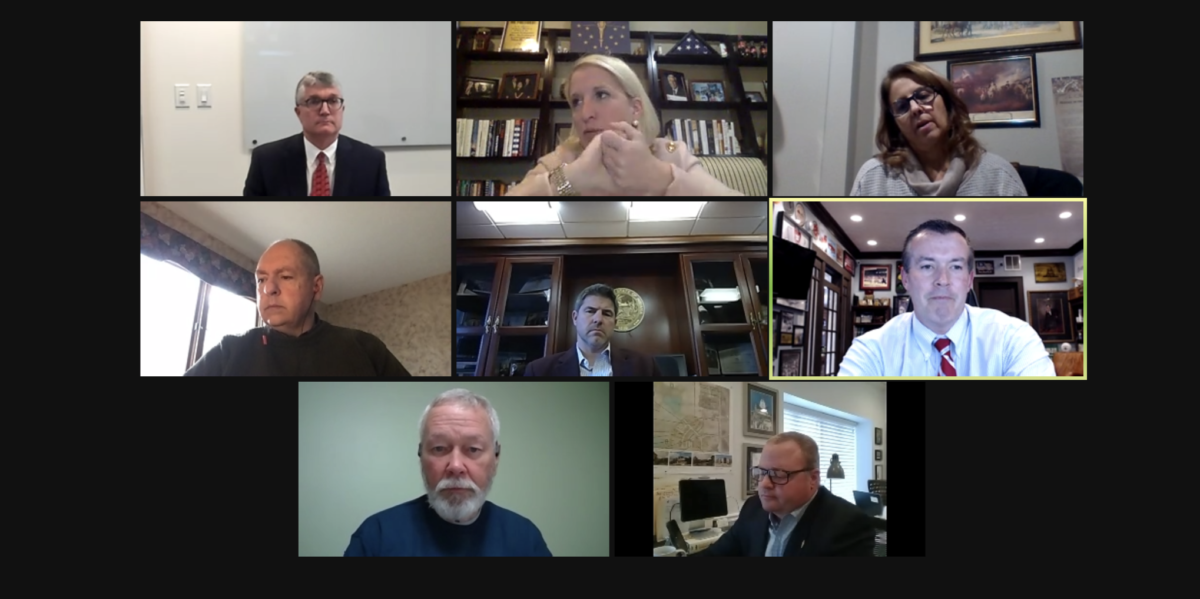Local state lawmakers gathered virtually Friday at an event to answer questions from constituents, and share their thoughts about the violent siege of the U.S. Capitol on Wednesday.
Aspire Economic Development and Chamber Alliance of Johnson County hosted its first Legislation Matters event of the year. Eight state lawmakers representing Johnson County and the southside of Indianapolis joined to talk about their expectations for the General Assembly’s legislative session, and the recent national unrest.
To start the discussion, President Pro Tem Rod Bray, R-Martinsville, spoke about the violent storming of the U.S. Capitol on Wednesday, saying he was saddened and frustrated by the event.
“We all need to keep in mind how important — frankly more important than any particular person or policy — how important the process of our democratic elections are … and we have to accept those results,” Bray said.
He added that inciting violence discredits any arguments toward the other side.
“We just need to keep in mind as a state and nation, how important democracy is, and keep in mind too how fragile it is,” Bray said.
All the lawmakers were later asked if they felt safe inside the Indiana Statehouse given its security measures, and they all answered yes.
Rep. Mike Speedy, R-Indianapolis, also added that he was deeply saddened by the event and wants to see justice.
“I hope those who were smashing windows of the U.S. Capitol and climbing in are treated equally to those who smashed the windows of businesses in our cities earlier this year,” Speedy said.
The legislators spent nearly an hour answering questions submitted by those who attended the panel. The burning question asked was what the state legislature planned to do to help businesses survive the pandemic.
A priority of both the House and Senate is passing a law to protect businesses and organizations from getting sued by employees for coronavirus-related reasons. For example, someone could not sue a business if they catch COVID-19 while working there, and the business was doing its best to follow safety precautions.
“I practice law for a living, and I don’t think there should ever be a lawsuit about COVID, period,” said Sen. Aaron Freeman, R-Indianapolis.
The General Assembly also plans to redefine how the governor of Indiana can use his or her executive orders in the future. One bill, authored by Freeman, would require the General Assembly to be called in to vote on whether to continue an emergency executive order if it has been issued for more than six days.
“I think business needs predictability. You can’t have executive orders that go on for 10 months, or a year or more, and not know what business is going to be like in that environment,” Freeman said.
Another hot-button issue lawmakers are expected to hear this session is regarding a bill that would provide handgun training to teachers to protect from potential school shootings. The bill, which has a version in the House and Senate, was widely debated in 2019, and died before the end of the session.
Sen. Jack Sandlin, R-Indianapolis, said there are already schools in Indiana that allow teachers to carry firearms inside the buildings. The idea behind this legislation is to create a standard of training for schools that wish to arm teachers. There would be no requirement for school boards to make teachers carry firearms.
“I don’t think it’s so much as advocating (for arming teachers), but trying to professionalize the quality of training,” Sandlin said.
On the topic of elections, Sen. Greg Walker, R-Columbus, talked about his legislation to address election security, and hopefully better prepare local clerks for an influx of mail-in voting if it happens again in the future. He added that the storming of the U.S. Capitol reinforced how important election integrity and security is, and it is up to the states to do better.
“The fact that we have 50 states holding elections is not a flaw, but it’s a feature in our national elections,” Walker said. “We should never endure federal intervention on managing Indiana’s electoral process.”





